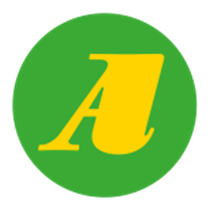Reading
At Argyle, we prioritise the teaching of reading, recognising its significant impact on all areas of life. To support this, we dedicate an hour of curriculum time each day to teaching essential reading skills in all classes from Reception to Year 6.
In Nursery, the Foundations to Phonics program is taught throughout the year. Children in Nursery enjoy at least two stories daily and learn a variety of nursery rhymes, committing them to memory. To support parents, Nursery staff use the Every Child a Reader by 7 booklet, emphasising the importance of quality conversation, storytelling, and sharing rhymes with their children.
For pupils in Key Stage 1, 30 minutes each day is devoted to phonics, where children develop the decoding skills needed for reading. An additional 30 minutes is spent applying these skills by reading phonetically decodable books and enjoying a range of audio books and online stories.
Key Stage 2 pupils have an hour of reading each day. One session focuses on reading a key text with an adult and engaging in discussions about the text. The other session involves exploring a variety of texts, such as poetry or newspapers, and using Reciprocal Reading strategies—predicting, clarifying, questioning, and summarising—to analyse and discuss the material with their peers.
Additionally, KS2 pupils are given a "Book Club" book to read at home. Every Friday, they gather in groups to discuss their reading. These discussions are often supported by teachers, teaching assistants, and a team of reading volunteers.
All pupils in Years 2-6 are also provided with comprehension practice resources to complete at home.
We follow the Little Wandle Phonics scheme and regularly host sessions for parents to observe phonics lessons. This helps parents gain the skills and confidence to support their child’s learning at home. Every half-term, we assess pupils to identify any gaps in their learning and provide targeted "Keep Up" sessions to ensure they receive the additional support they need.
As a school we are committed to developing a whole -school love of reading. Alongside the daily dedicated reading time and the home reading, we also ensure that:
- There is a whole school library and book areas in the office area and the playground for children to access books freely;
- Each class has a well-stocked book corner which promotes a range of text types;
- Pupils’ reading is celebrated through an interactive reading display which is updated on a weekly basis.
- Nursery to Year 2 take part in ‘Every Child Reading by 7’ activities such as author visits, visits to the British Library and to our local library (Pancras Square Library). KS2 also attend author events organised by the British Library, Bookmark Reading and Coram’s Beanstalk.
To further foster a love of reading, we have introduced the Reading Road Map program for pupils in Years 1–6. Each pupil receives a map featuring a variety of texts. They have the freedom to explore different genres or focus on their preferred style. Pupils share recommendations with their peers, discussing their thoughts and experiences of the books they’ve read. As they progress, pupils earn bronze, silver, gold, and platinum certificates for completing a set number of texts, celebrating their achievements along the way.
